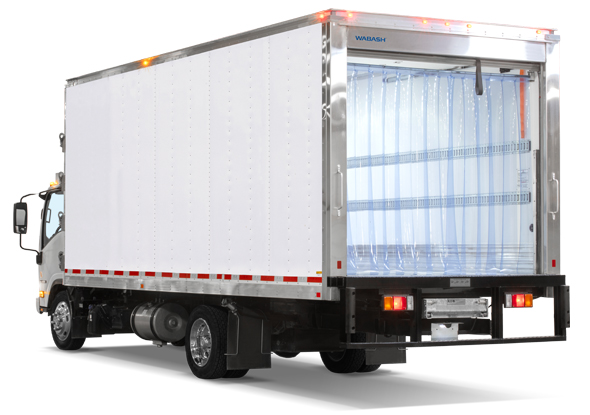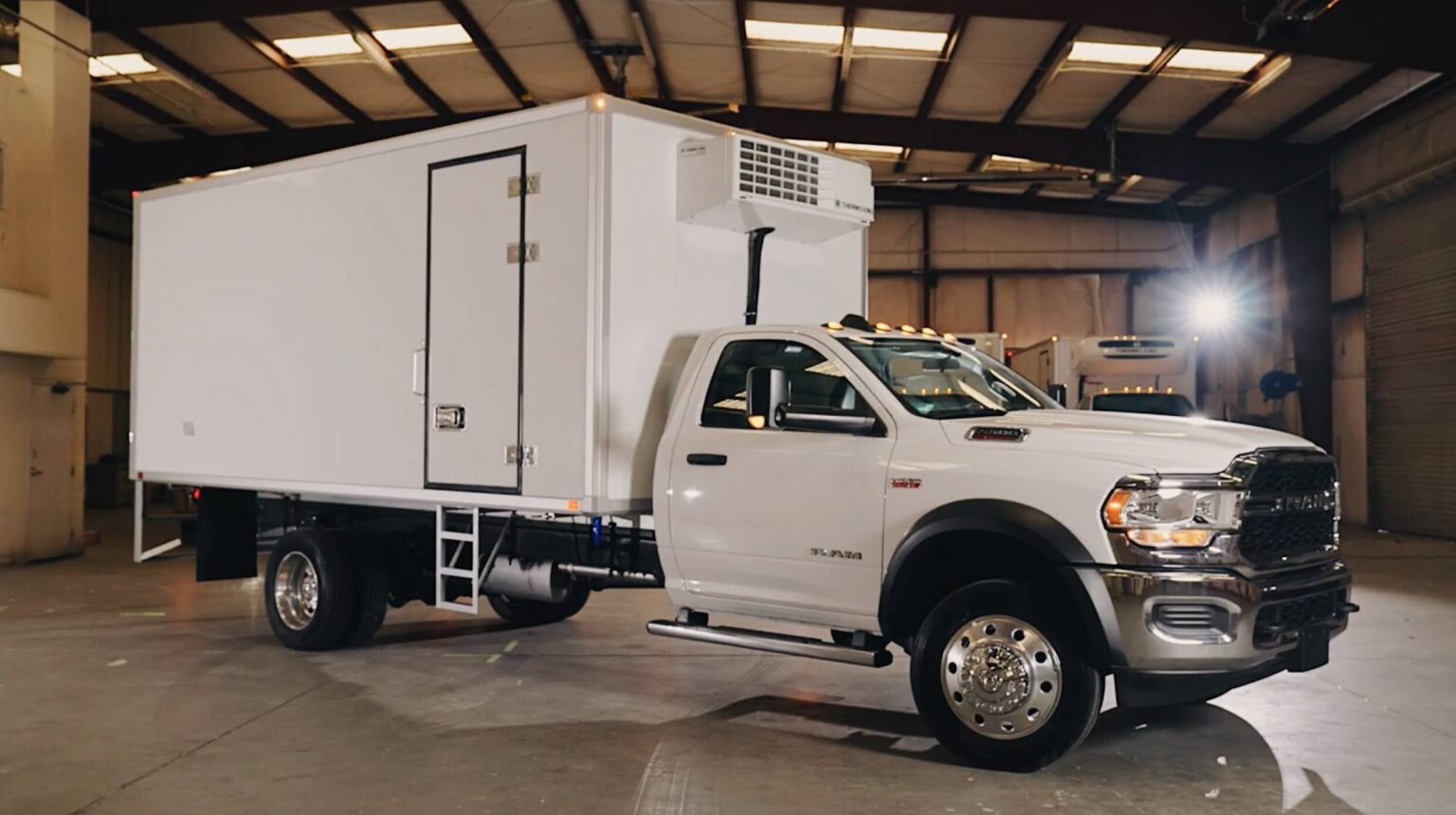Reefer Trucks Thermo King: Blazing A Trail in Cold Chain Innovation
Wiki Article
Choosing the Right Transportation Refrigeration System for Your Fleet
Picking an appropriate transportation refrigeration system for your fleet is a crucial choice that can dramatically influence functional effectiveness and product integrity. It necessitates a comprehensive understanding of your specific refrigeration demands, consisting of temperature level needs and distribution routines.Comprehending Your Refrigeration Demands
When picking a transport refrigeration system, understanding your specific refrigeration requirements is vital to ensuring product quality and compliance with market requirements. Different variables have to be thought about to figure out one of the most ideal system for your procedure. These consist of the kind of items being moved, their temperature level needs, and the period of transportation.For perishable products, such as fresh produce or pharmaceuticals, accurate temperature control is vital. Comprehending the temperature range needed for each and every item enables for the choice of a system that can maintain those conditions consistently. In addition, take into consideration the regularity of shipments and the distance traveled; longer trips might demand systems with boosted insulation or backup power options to avoid temperature variations.

Moreover, the capability of the refrigeration system must line up with your tons size. By thoroughly evaluating these factors, you can ensure that your chosen transportation refrigeration system properly meets your functional demands and preserves product integrity.
Types of Transportation Refrigeration Solution
Choosing the best sort of transportation refrigeration system is critical for ensuring the secure transportation of temperature-sensitive products. There are several systems readily available, each created to satisfy particular demands and applications.These systems are commonly preferred for their performance and reduced first prices. An additional option is the main refrigeration system, which serves several areas or automobiles from a single compressor system.
In addition, there are self-contained refrigeration devices that combine the compressor and evaporator in one bundle. When room is limited, these systems are excellent for smaller cars or. For specialized applications, such as transporting pharmaceuticals or perishables, cryogenic refrigeration systems might be utilized, utilizing fluid nitrogen or carbon dioxide to preserve ultra-low temperature levels.
Lastly, hybrid refrigeration systems that integrate diesel and electrical power are becoming progressively prominent, supplying flexibility in power use and decreasing ecological influence. Understanding these various types enables fleet operators to make educated choices customized to their specific operational requirements.
Secret Attributes to Take Into Consideration
How can one ensure that a transport refrigeration system meets all operational requirements? To achieve this, a number of essential attributes must be thoroughly assessed. Temperature control is crucial; systems should offer specific temperature setups to fit various products, varying from iced up products to perishable items.Power effectiveness is an additional essential consideration, as it influences functional costs. Look for systems that make use of innovative innovation, such as variable speed compressors, to maximize energy usage without compromising performance.
An additional function to assess is the integrity and longevity of the devices. Systems created from top notch materials and designed for strength versus severe problems will reduce upkeep costs and downtime.
In addition, the simplicity of maintenance and availability of components can dramatically influence functional efficiency (thermo king transport refrigeration). Attributes like modular designs or remote surveillance capabilities can simplify service procedures
Finally, compatibility with existing fleet monitoring software application can improve monitoring and reporting procedures. By concentrating on these essential features, fleet operators can make certain that their transport refrigeration systems not just fulfill current needs however additionally adapt to future requirements.

Budgeting for Refrigeration Solutions
Evaluating key features of transportation refrigeration systems is just one component of making sure operational effectiveness; budgeting for refrigeration solutions is equally vital. A well-structured spending plan not just includes Visit Website the initial acquisition cost however likewise considers long-term functional expenses, including power usage, maintenance, and possible repair service requirements.When establishing a spending plan, fleet managers should initially evaluate the total expense of ownership (TCO) This consists of not only the acquisition prices but additionally continuous expenses associated with fuel efficiency and the toughness of the refrigeration systems. Selecting systems with greater energy performance ratings might produce substantial cost savings over time, minimizing in advance prices.
Moreover, fleet operators ought to account for potential scalability. As organizations grow, the refrigeration requires may alter, demanding upgrades or additional systems. Preparation for these future costs can prevent monetary pressure.
Financing choices can additionally play a vital duty in budgeting. Leasing, fundings, or straight-out purchases each have unique economic implications, and understanding these can assist in making an educated choice. Ultimately, a detailed spending plan that considers both future and instant demands makes certain that transport refrigeration systems contribute positively to the overall operational effectiveness of the fleet.
Upkeep and Assistance Alternatives
In the world of transport refrigeration systems, effective maintenance and support choices are important for ensuring optimal efficiency and long life. Normal upkeep is necessary to avoid break downs and preserve the stability of temperature-sensitive cargo. It is a good idea to develop a routine assessment routine with qualified technicians who can perform necessary checks and repairs on refrigeration units.Support alternatives need to consist of a durable service contract, covering both routine maintenance and emergency situation repair services. This makes sure that your fleet has access to trigger assistance, minimizing downtime and maintaining functional effectiveness. Numerous producers offer comprehensive assistance bundles that include training for your team, our website allowing them to perform basic troubleshooting and upkeep tasks.
Additionally, utilizing remote surveillance innovation can enhance your upkeep approach - refrigerated transportation thermo king. These systems offer real-time data on temperature level and performance, permitting aggressive steps prior to problems escalate. Buying training and innovation not just improves your fleet's reliability yet additionally prolongs the lifespan of your refrigeration systems
Eventually, a tactical strategy to maintenance and assistance will guard your investment and make certain that your transport refrigeration systems run at peak efficiency, providing constant results for your service.

Conclusion
In final thought, selecting the suitable transport refrigeration system for a fleet necessitates a comprehensive assessment of particular refrigeration needs, system types, and important attributes. Focusing on functional effectiveness, energy consumption, and maintenance factors to consider is crucial for ensuring integrity. see it here In addition, mindful budgeting and preparation for future scalability will certainly contribute to the long-term success of the refrigeration strategy. Inevitably, a knowledgeable decision will boost product integrity and maximize general logistics operations within the fleet.Choosing an appropriate transportation refrigeration system for your fleet is an important decision that can dramatically affect functional effectiveness and item stability.When picking a transport refrigeration system, recognizing your particular refrigeration demands is critical to guaranteeing item high quality and conformity with industry requirements. By thoroughly examining these variables, you can guarantee that your picked transport refrigeration system successfully fulfills your operational requirements and keeps product honesty.
Eventually, a thorough budget that thinks about both future and immediate requirements makes certain that transport refrigeration systems contribute positively to the total functional efficiency of the fleet.
In final thought, choosing the ideal transport refrigeration system for a fleet requires a comprehensive evaluation of specific refrigeration needs, system types, and essential features.
Report this wiki page